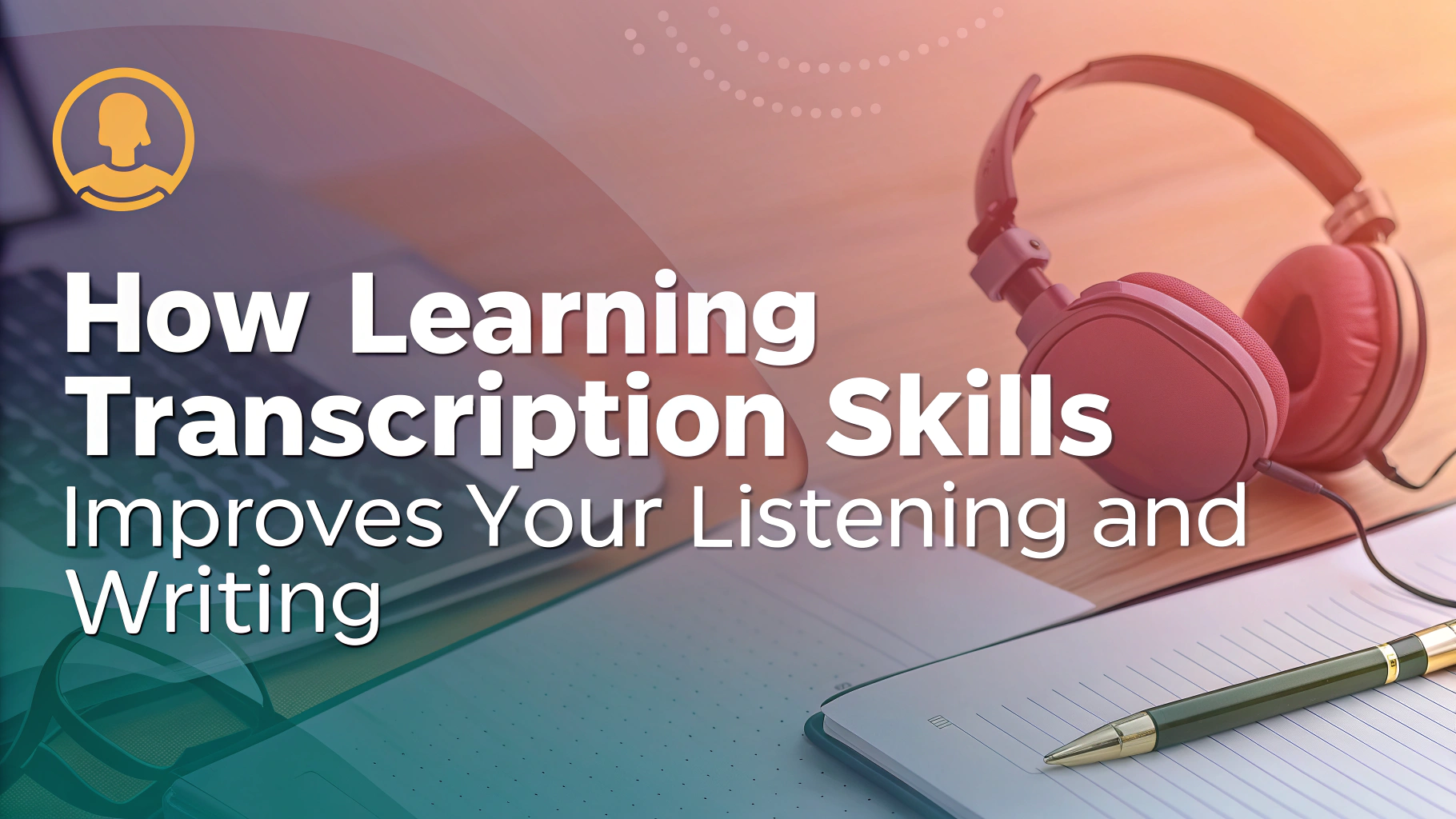Learning transcription skills directly improves your listening and writing abilities by training your brain to focus on sounds, words, and sentence structures in real time.
By converting audio to text or video to text, you practice active listening, sharpen attention to detail, and enhance your ability to capture spoken language accurately in writing.
These skills boost comprehension, vocabulary, spelling, and overall communication proficiency, making transcription an effective tool for learners, writers, and professionals alike.
What Are Transcription Skills and Why Do They Matter?
Transcription skills involve the ability to listen carefully to spoken content and accurately write it down. This process requires excellent listening, fast typing, and strong language skills. Mastering transcription helps learners improve not only their writing mechanics but also their understanding of spoken language nuances such as tone, pauses, and emphasis. Transcription bridges oral and written communication, helping users internalize language patterns and vocabulary.
| Skill Category | Description |
|---|---|
| Listening Skills | Ability to carefully hear and distinguish spoken words, tone, pauses, and emphasis |
| Typing Skills | Fast and accurate typing to keep pace with the audio content |
| Language Proficiency | Strong vocabulary, grammar, spelling, and sentence structure knowledge |
| Attention to Detail | Noticing subtle language nuances, speaker changes, and non-verbal cues like tone or hesitation |
| Comprehension Skills | Understanding context and meaning behind spoken words to transcribe accurately |
| Editing and Proofreading | Reviewing transcripts for accuracy, grammar, punctuation, and formatting |
| Time Management | Managing pace and breaks efficiently during transcription work |
| Use of Tools | Familiarity with transcription software and audio playback controls |
How Transcription Enhances Listening Proficiency
When you practice transcription, you train your ears to focus intently on every word, sound, and intonation. This improved auditory attention leads to better comprehension in conversations, lectures, and media.
Transcription forces you to slow down audio playback if needed, which helps catch details you might otherwise miss. Whether transcribing podcasts, interviews, or videos, the exercise boosts your ability to process and understand spoken language more effectively.
Ways Transcription Improves Writing Skills
Transcription exercises help develop key writing abilities such as spelling, punctuation, sentence structure, and vocabulary. By regularly converting audio to text, learners see how spoken language translates into formal writing, which improves their own written communication. It also increases awareness of grammar rules and common speech patterns. Over time, transcription sharpens writing fluency and clarity because you become more familiar with language flow and usage.
Practical Applications
Today, transcription skills are valuable in many contexts. Converting audio to text is essential for creating meeting minutes, academic notes, and content for accessibility. Similarly, video to text transcription is widely used in media production, captioning, and research. Learning transcription empowers professionals and students to generate accurate text versions of audio or video sources, saving time and improving content quality.
Tips for Developing Strong Transcription Skills
- Start with short, clear audio clips. Use podcasts or interviews with good sound quality to build confidence.
- Use transcription software wisely. Tools like Otter.ai or VOMO can assist but always practice manual transcription to sharpen skills.
- Focus on accuracy over speed. Perfect the details before increasing transcription speed.
- Review and edit your transcripts. Checking your work reinforces learning of language rules.
- Practice regularly. Consistency is key to improving both listening and writing proficiency.
Conclusion: The Power of Transcription for Language Mastery
In summary, learning transcription skills offers a dual benefit: enhancing your listening capabilities and strengthening your writing proficiency. By engaging with content through audio to text and video to text transcription, you develop sharper language awareness, better spelling, and clearer writing style. Whether you’re a language learner, journalist, student, or professional, transcription is a practical skill that can significantly elevate your communication abilities.


